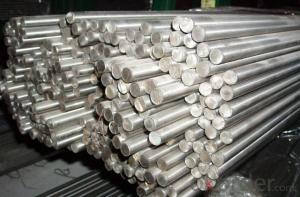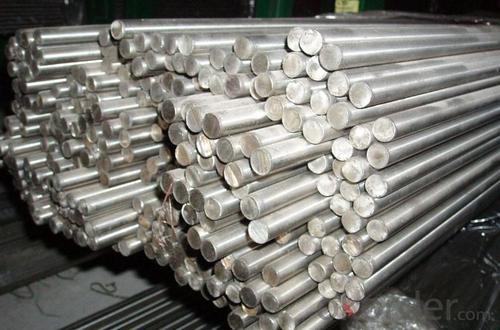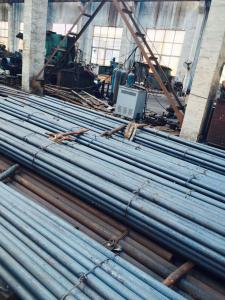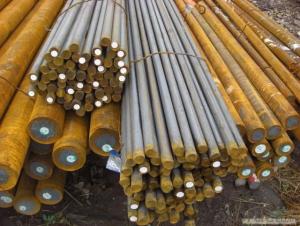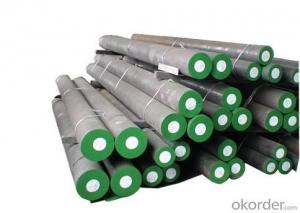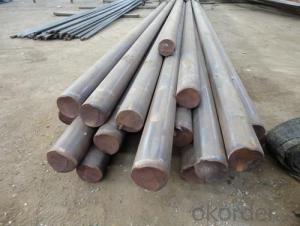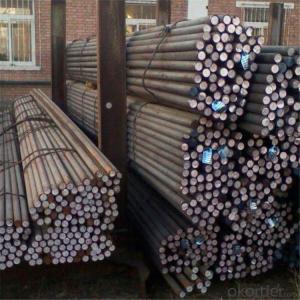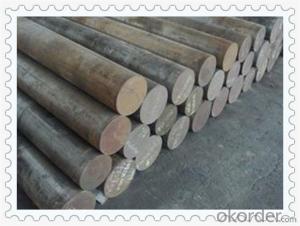ASTM 1065 Alloy Cold Drawn Steel Round Bar
- Loading Port:
- Tianjin
- Payment Terms:
- TT OR LC
- Min Order Qty:
- 25 m.t.
- Supply Capability:
- 50000 m.t./month
OKorder Service Pledge
OKorder Financial Service
You Might Also Like
Specification
ASTM 1065 Alloy Cold Drawn Steel Round Bar
Product Description:
1. Sizes: Diameter: 16mm-300mm; Length: 6m, 9m, 12m
2. Grade: ASTM 1065
3. Invoicing on theoretical weight or actual weight as customer’s request
4. Shape: Round bar, solid bar of steel with circular section
5. Technique: Hot rolled, forged, cold rolled
Specifications:
Material | ASTM 1065 | Round bar | Dia(mm) | Max 700 |
Process | EAF + LF + VD + Forged + Heat Treatment (optional) | Length (mm) | Max 12000 | |
Heat treatment | Normalized / Annealed / Quenched / tempered | Plate bar | Thickness(mm) | Max 200 |
Delivery condition | Hot forged +Rough machined (black surface after Q/T)+ Turned (optional) | Width(mm) | Max 3000 | |
Test | Ultrasonic test according to SEP 1921-84 D/d | Length (mm) | Max 12000 |
Chemical Composition:
Standards: ASTM,JIS,GB,EN(DIN,BS,NF)
Grade | C | Si | Mn | Cr | Ni | Cu |
ASTM 1065 | 0.62~0.70 | 0.17~0.37 | 0.50~0.80 | ≤0.25 | ≤0.30 | ≤0.25 |
Delivery Condition:
EAF+LF+VD+(ESR), rolled / forged, annealed / Q+T, black/peeled/turned, UT tested
Application:
Carbon steel rod applies to chemical industry, shipping industry,manufacturing industry, construction, decorate industry, electric power, pump shafts, sanitary wares, furniture handles, boiler, high temperature resistant,low temperature resistant,corrosion resistant
Sales Information:
Material | High Quality Carbon Structural Steel ASTM 1065 |
Size | Diameter:10-700mm Length:6000mm-12000mm |
Origin place | Made In China |
Delivery Condition | Hot rolled, cold drawn, forged |
Surface require | Black, grinding, bright, polish |
Heat treatment | Quenched, Tempered, annealed |
Packing | Seaworthy packing ,wooden case ,carton,woven bag or at client's requires |
Delivery time | According to order’s quantity. |
Trade Term | EXW,FOB,CIF |
Payments | T/T or L/C at sight |
Port | China main Port, such as shanghai, Dalian, Shenzhen port. |
MOQ | 25 Metric Ton |
Product show:
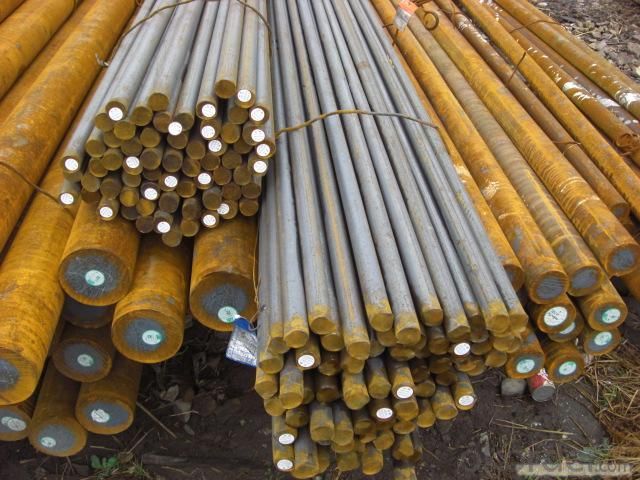
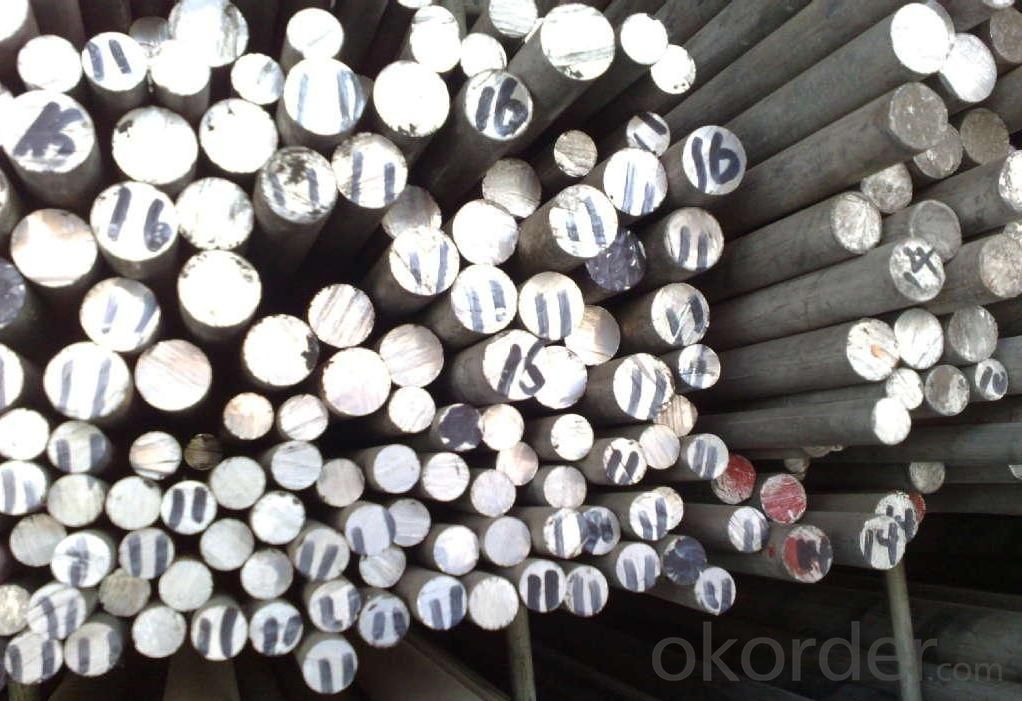
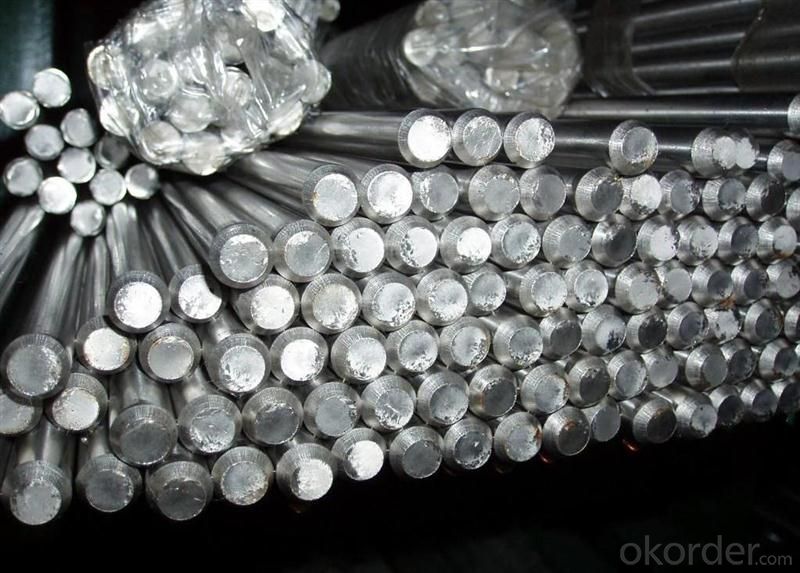
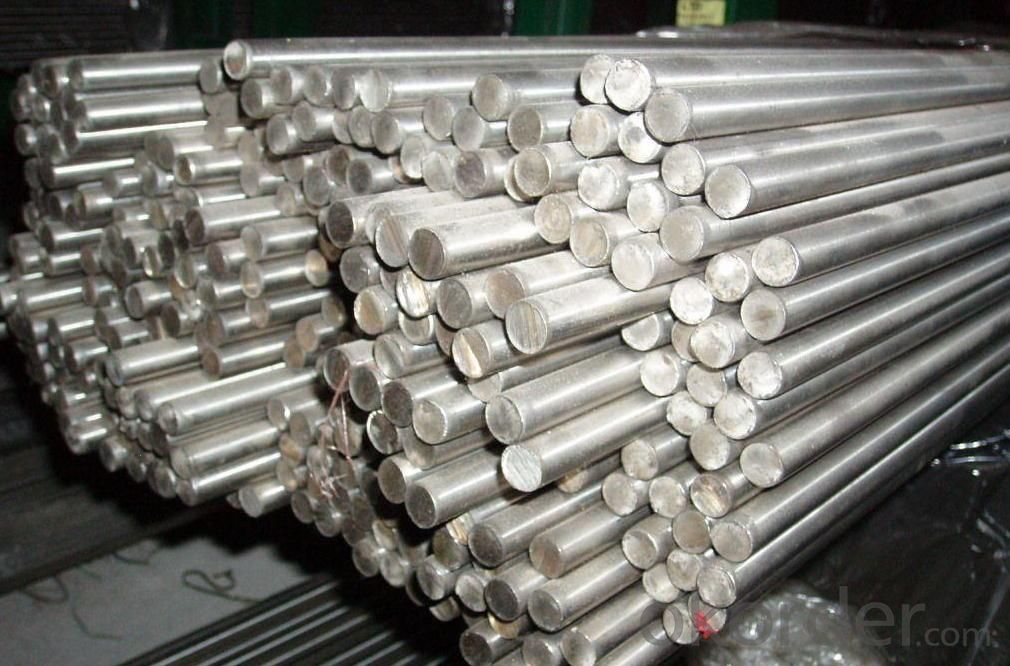
- Q: What are the properties of wear-resistant tool steel?
- Wear-resistant tool steel typically possesses high hardness, excellent toughness, and good resistance to abrasion, corrosion, and deformation. It is capable of maintaining its cutting edge for extended periods, making it ideal for applications where tools are subjected to high wear and friction. Additionally, wear-resistant tool steel often exhibits good heat resistance, ensuring stability and performance even under high temperatures.
- Q: How is special steel used in the production of molds and dies?
- Special steel is used in the production of molds and dies due to its unique properties such as high hardness, wear resistance, and ability to withstand high temperatures. These characteristics make it suitable for shaping and forming various materials through processes like casting, forging, and stamping. Special steel molds and dies can be used in industries such as automotive, aerospace, and manufacturing to create precise and durable components or products.
- Q: Can special steel be used in the manufacturing of cutting-edge technology products?
- Yes, special steel can definitely be used in the manufacturing of cutting-edge technology products. Special steel is known for its high strength, durability, and resistance to corrosion, making it an ideal material for various applications in the technology industry. For example, in the production of smartphones, special steel can be used for the casing, providing excellent protection against impact and scratches while maintaining a sleek and modern design. Additionally, special steel can be utilized in the manufacturing of precision components for advanced machinery, such as robotics or medical devices, where high strength and reliability are crucial. Overall, special steel offers numerous advantages that make it a suitable choice for the production of cutting-edge technology products.
- Q: How does special steel contribute to the renewable energy sector?
- Special steel plays a crucial role in the renewable energy sector by enabling the development and production of efficient and durable components for renewable energy technologies. For example, special steel is used in the manufacturing of wind turbine towers, blades, and foundations, ensuring their structural integrity and longevity. It is also utilized in solar panel frames, supporting structures, and transmission systems, enhancing their resilience and performance. Additionally, special steel is essential in the construction of hydroelectric power plants, ensuring the strength and reliability of penstocks, turbines, and other critical components. Its unique properties and characteristics contribute significantly to the overall efficiency, sustainability, and cost-effectiveness of renewable energy systems.
- Q: What are the different heat treatment processes used in special steel production?
- Some of the different heat treatment processes used in special steel production include annealing, tempering, quenching, normalizing, and hardening.
- Q: How does special steel perform in electrical applications?
- Special steel, known as electrical steel, is purposely created and produced to meet the specific needs of electrical applications. It displays outstanding magnetic properties, rendering it highly suitable for utilization in electrical machines and devices. A primary feature of special steel is its diminished electrical resistivity, enabling efficient current flow and minimizing energy losses in electrical circuits. This reduced resistivity is achieved through precise control of the steel's composition and microstructure. Moreover, special steel possesses a high magnetic permeability, allowing for easy magnetization and demagnetization. This characteristic is crucial for the effective functioning of electrical machines such as transformers, motors, and generators. Additionally, special steel exhibits low coercivity, making it susceptible to magnetization or demagnetization with relatively low levels of magnetic field strength. This attribute proves advantageous in applications requiring rapid and precise magnetic switching, like electric transformers. Furthermore, special steel demonstrates minimal hysteresis loss, which pertains to the dissipation of energy as heat during magnetization and demagnetization cycles. This quality guarantees minimal energy losses in electrical devices, ultimately improving overall efficiency. To summarize, special steel excels in electrical applications due to its low electrical resistivity, high magnetic permeability, low coercivity, and low hysteresis loss. These properties establish it as an ideal choice for a wide range of electrical machines and devices, enhancing their efficiency and reliability.
- Q: Can special steel be used in food processing applications?
- Yes, special steel can be used in food processing applications. Special steel, such as stainless steel, is commonly used in the food industry due to its excellent corrosion resistance, hygienic properties, and durability. It is safe for food contact, easy to clean, and does not react with acidic or alkaline substances.
- Q: How does special steel respond to welding?
- Alloy steel, also known as special steel, possesses distinct characteristics that impact its welding response. Unlike regular carbon steel, special steel incorporates additional alloying elements like chromium, nickel, or molybdenum, which augment its strength, resistance to corrosion, and heat endurance. In terms of welding, special steel generally exhibits favorable behavior due to its elevated tensile strength and toughness. However, a few considerations should be borne in mind. The elevated carbon content in certain special steels can result in cracking or brittleness during the welding process. To prevent this, preheating the material and employing appropriate welding techniques are imperative. Selecting the appropriate welding method based on the specific type of special steel being utilized is crucial. For example, gas tungsten arc welding (GTAW) or tungsten inert gas (TIG) welding is commonly favored for welding stainless steel due to its ability to precisely control heat input and produce high-quality welds with minimal distortion. Additionally, special steel often necessitates the use of specialized welding consumables, like electrodes or filler wires, specifically formulated for the particular alloy composition. These consumables aid in maintaining the desired mechanical properties and preventing the formation of brittle phases in the weld. Post-weld heat treatment is also vital for certain special steels as it alleviates residual stresses and enhances the overall properties of the weldment. This process can involve annealing, normalizing, or tempering, depending on the specific steel grade and application requirements. In conclusion, special steel responds favorably to welding, but it is crucial to consider its alloy composition, carbon content, and specific welding techniques. By adhering to proper welding procedures, employing appropriate consumables, and implementing necessary heat treatments, high-quality welds can be achieved, guaranteeing the integrity and performance of the special steel components.
- Q: How is special steel used in the mining supply chain?
- Special steel is used extensively in the mining supply chain due to its exceptional strength, durability, and resistance to corrosion. It is utilized in various equipment and machinery used for exploration, extraction, processing, and transportation of minerals. Special steel is commonly employed in mining tools, drill bits, conveyor systems, crushers, grinding mills, and pumps, ensuring efficient and reliable operations in challenging mining environments.
- Q: How does special steel contribute to the power generation sector?
- Special steel contributes to the power generation sector by offering enhanced strength, durability, and corrosion resistance properties required for critical components such as turbine blades, shafts, and boiler tubes. This high-performance steel ensures efficient power generation by withstanding extreme temperatures and pressures, thereby increasing the overall efficiency and reliability of power plant operations.
Send your message to us
ASTM 1065 Alloy Cold Drawn Steel Round Bar
- Loading Port:
- Tianjin
- Payment Terms:
- TT OR LC
- Min Order Qty:
- 25 m.t.
- Supply Capability:
- 50000 m.t./month
OKorder Service Pledge
OKorder Financial Service
Similar products
Hot products
Hot Searches
Related keywords
